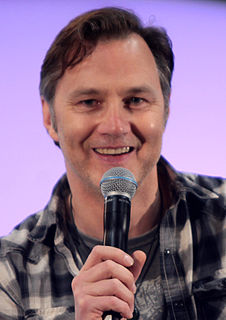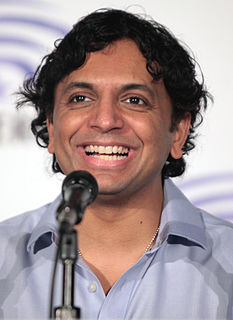A Quote by David Morrissey
As a director, your work is finished only when it's on the screen. But I will always be an actor who occasionally directs. And no, I have no interest in directing myself. I wouldn't be able to concentrate on both jobs at once.
Related Quotes
My job as an actor is to try to do what the director wants me to do. I'm going to do everything I can to incorporate that note and make it work. If it doesn't work, I'll try this kind of thing, and "How do you feel about that?" If you are at odds with the director, neither one of you is going to get anywhere. You really do have to be able to make both of you happy. Even when I was younger, there were times when you have to find a way to make it work for both of you.
Stepping out of the director's chair completely and into a scene as an actor was weird. It was more excitement about directing than anything, but I was on a high from being a director and enjoying that process so much that going back to being an actor was almost secondary because I really was loving directing.
With a director it's all about the work; I'd work with a great director over - you know, I'm not the kind of actor who that doesn't go, 'I want to play this role.' It's more like, 'I want to work with this director,' regardless of what the role is because if it's a good director, you'll probably find a good role because it's a decent film. But a mediocre director will always make a mediocre movie.
An actor and a [theatre] director are both what I would call interpreters of work. We interpret a work, just as a musician will interpret a composer's work, we interpret the work of a playwright. We are servants of the theatre and I've always believed that. We must serve what has been written, that's what we're there for.
The only disadvantage to directing if you've been an actor is how self-conscious you are. When I'm directing, I'm always so aware when I'm speaking to an actor of how easily I could throw them off by saying something careless or not being clear or concise. So it does make you watch your words in a way that sometimes is unhelpful.
I had always planned when I started directing in 1970 that after a few years I'd get tired of looking at myself on the screen and say: "Hey, let's not do that any more." But then every once in a while something pops up. I'm not saying it won't happen again but probably the odds get less as you set yourself for roles that fit your age group.



































